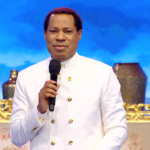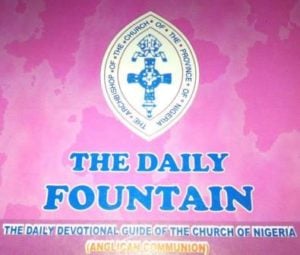Liturgical Readings for : Monday, 2nd September, 2024
Monday of the Twenty-Second Week in Ordinary Time, Year 2
FIRST READING
A reading from the first letter of St Paul to the Corinthians 2:1-5
The only knowledge I claimed to have was about the crucified Christ.

Brothers, when I came to you, it was not with any show of oratory or philosophy, but simply to tell you what God had guaranteed. During my stay with you, the only knowledge I claimed to have was about Jesus, and only about him as the crucified Christ.
Far from relying on any power of my own, I came among you in great ‘fear and trembling’ and in my speeches and the sermons that I gave, there were none of the arguments that belong to philosophy; only a demonstration of the power of the Spirit
And I did this so that your faith should not depend on human philosophy but on the power of God.
The Word of the Lord. Thanks be to God.
Responsorial Psalm Ps 118
Response Lord, how I love your law!
1. Lord, how I love your law! It is ever in my mind.
Your command makes me wiser than my foes; for it is mine for ever. Response
2. I have more insight than all who teach me for I ponder your will.
I have more understanding than the old for I keep your precepts. Response
3. I turn my feet from evil paths to obey your word.
I have not turned away from your decrees; you yourself have taught me. Response
Gospel Acclamation Jn 8: 12
Alleluia, alleluia!
I am the light of the world, says the Lord,
anyone who follows me will have the light of life.
Alleluia !
Or Lk 4: 18
Alleluia, alleluia!
The Lord has sent me to bring the Good News to the poor,
to proclaim liberty to captives.
Alleluia !
GOSPEL
The Lord be with you And with your spirit.
A reading from the Gospel according to Luke 4:16-30 Glory to you, O Lord
He has sent me to bring the good news to the poor. No prophet is accepted in his own country.

Jesus came to Nazara, where he had been brought up, and went into the synagogue on the sabbath day as he usually did. He stood up to read and they handed him the scroll of the prophet Isaiah. Unrolling the scroll he found the place where it is written:
The Spirit of the Lord has been given to me,
for he has anointed me.
He has sent me to bring the good news to the poor,
to proclaim liberty to captives
and to the blind new sight,
to set the downtrodden free,
to proclaim the Lord’s year of favour.
He then rolled up the scroll, gave it back to the assistant and sat down. And all eyes in the synagogue were fixed on him.
Then he began to speak to them,
‘This text is being fulfilled today even as you listen’.
And he won the approval of all, and they were astonished by the gracious words that came from his lips
They said, ‘This is Joseph’s son, surely?‘
But he replied, ‘No doubt you will quote me the saying, “Physician, heal yourself” and tell me,
“We have heard all that happened in Capernaum, do the same here in your own countryside“‘.
And he went on, ‘I tell you solemnly, no prophet is ever accepted in his own country.
‘There were many widows in Israel, I can assure you, in Elijah’s day, when heaven remained shut for three years and six months and a great famine raged throughout the land, but Elijah was not sent to any one of these: he was sent to a widow at Zarephath, a Sidonian town. And in the prophet Elisha’s time there were many lepers in Israel, but none of these was cured, except the Syrian, Naaman.’
When they heard this everyone in the synagogue was enraged. They sprang to their feet and hustled him out of the town; and they took him up to the brow of the hill their town was built on, intending to throw him down the cliff, but he slipped through the crowd and walked away.
The Gospel of the Lord. Praise to you, Lord Jesus Christ.
********************
Gospel Reflection Monday Twenty Second Week in Ordinary Time Luke 4:16-30
Today’s gospel reading begins with an account of the liturgy of the word in the synagogue of Jesus’ home town in Nazareth. Jesus stands up to read from the prophet Isaiah and then sits down to comment on what he read. Jesus identifies himself with the prophet who was sent to bring good news to the poor, to proclaim liberty to captives, new sight to the blind, to set the downtrodden free. Jesus goes on to identify himself with two other prophets, Elijah and Elisha, who ministered to people outside Israel, a hungry widow from Sidon and a leper from Syria. Jesus was saying to the people of Nazareth that he had come for those in greatest need, regardless of who they were or where they were from. This generous vision Jesus had of his mission made the people of Nazareth very angry.
Jesus was one of their own and they expected special treatment. However, the good news is that Jesus has come for us all. If he has favourites it is those who are broken in body, in mind, in spirit. The Lord is constantly reaching out to us in our brokenness, in our pain and suffering. All he asks is that we receive him as he is, on his own terms, which the people of Nazareth could not do. The Lord is always close to all of us; it is our need, our suffering, whatever form it takes, which can bring us close to him.
________________________________
The Scripture Readings are taken from The Jerusalem Bible, published 1966 by Darton, Longman and Todd Ltd











